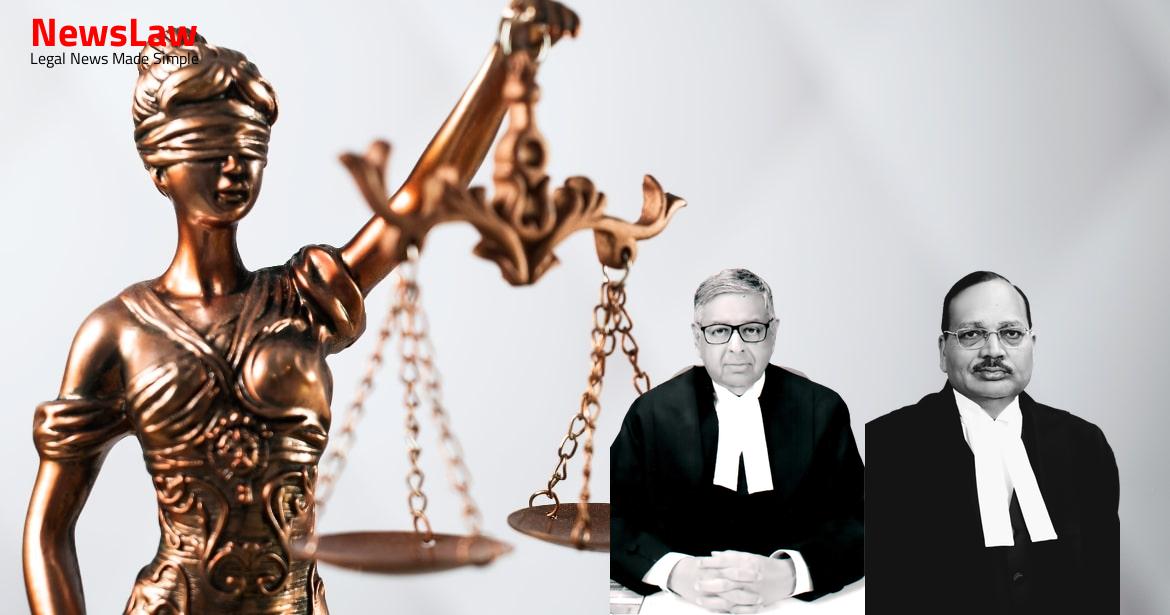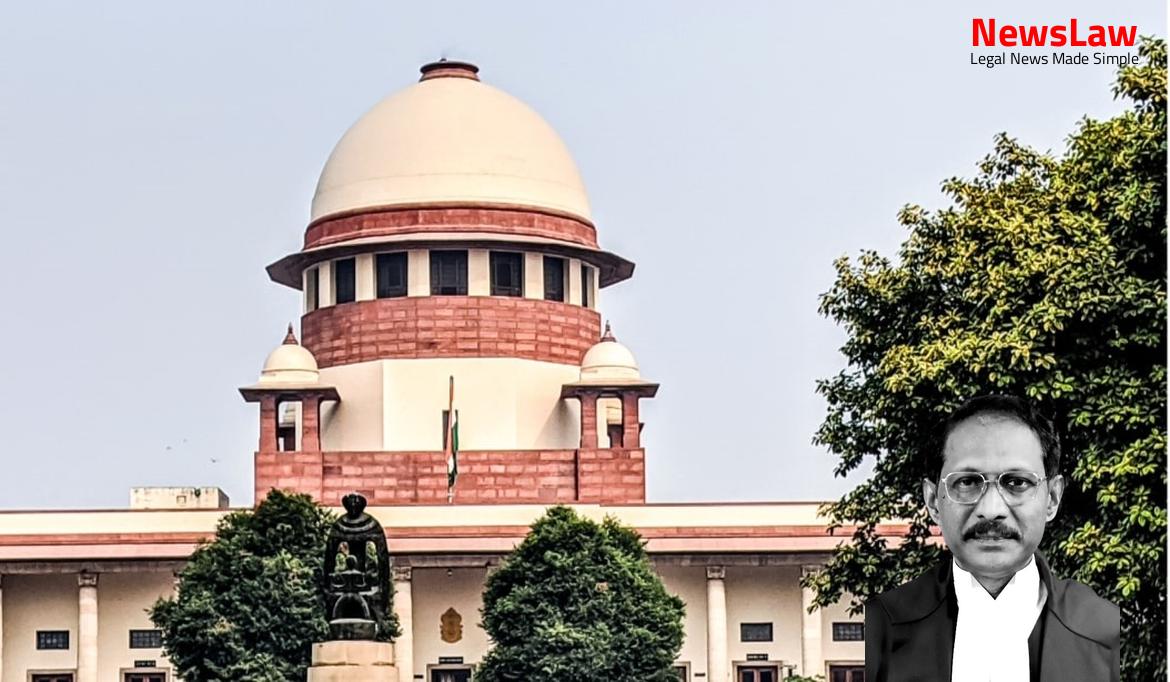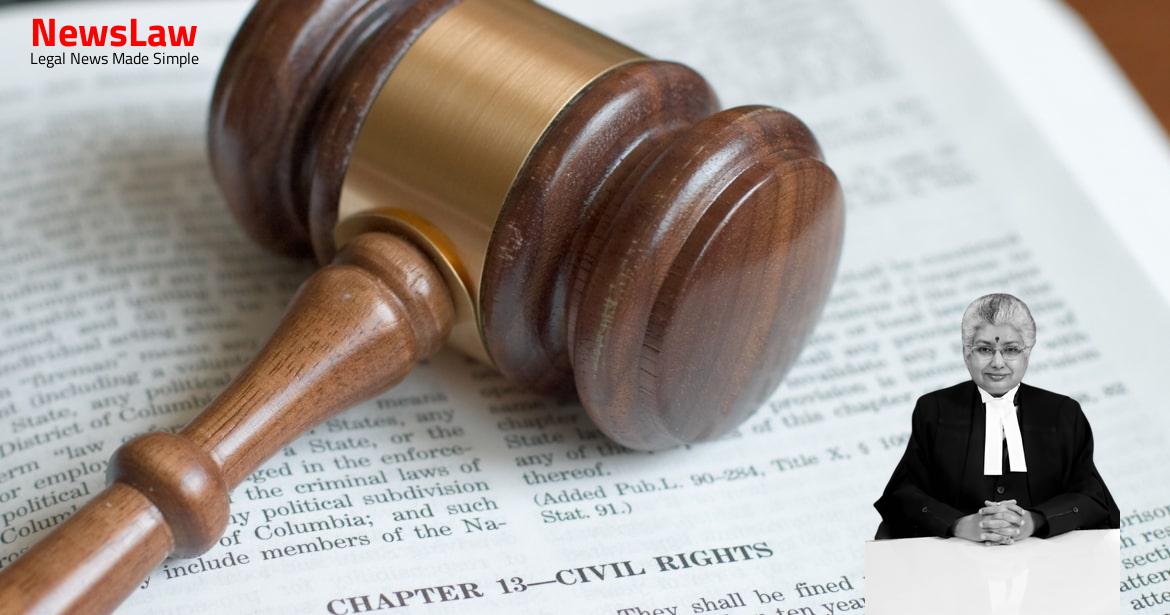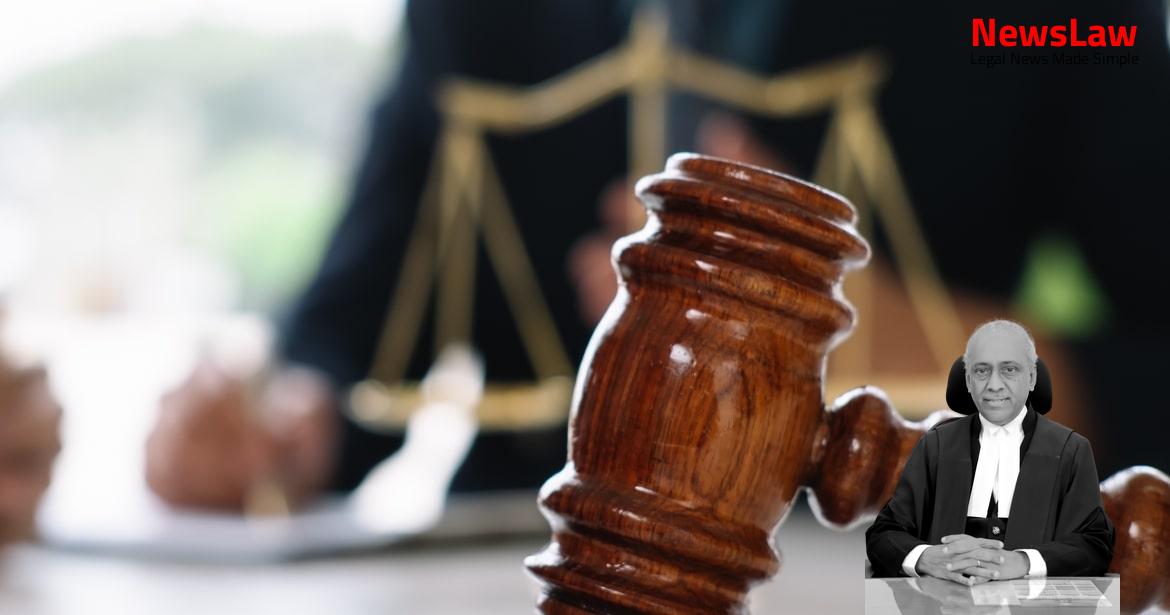The judgment scrutinizes the Trial Court and High Court’s decision to convict the accused under Section 304B, IPC. Through a meticulous legal analysis, the court evaluates the evidence presented and the interpretation of this specific law. Understanding the nuances of Section 304B is crucial in determining the correctness of the conviction. The blog focuses on the legal aspects and conclusions drawn by the courts in this significant case.
Facts
- The High Court upheld the order of conviction and sentence passed by the Trial Court.
- The appellants approached the High Court to set aside the order of conviction and sentence.
- The appeals arose from the impugned judgment passed by the High Court in Criminal Appeal Nos. 3-SB of 1998 and 16-SB of 1998.
- The case of the prosecution was that the deceased committed suicide after facing cruelty and harassment for bringing less dowry.
- The appellants were convicted for offences under Sections 304-B and 306, IPC.
- The appellants were sentenced to rigorous imprisonment for seven years under Section 304-B, IPC and five years under Section 306, IPC.
- The complainant, along with his wife and son, reached the hospital and discovered that the deceased had passed away due to burn injuries.
- On 31.7.1995, the complainant was informed by some persons that his daughter was ailing and admitted in the hospital.
- The appellants have filed appeals by way of Special Leave to challenge the concurrent findings of the Courts below.
Also Read: Electoral Malpractices in Mayor Election
Issue
- The main issue in question is whether the Trial Court and the High Court were correct in convicting the accused on the charge under Section 304B, IPC.
- This issue focuses on the correctness of the conviction under Section 304B specifically.
- Analysis of the evidence and interpretation of the law related to Section 304B will be crucial in determining the correctness of the Trial Court and High Court’s decision.
- The judgment will likely delve into the specific elements of Section 304B and assess whether they were satisfactorily proven in the case.
Also Read: Balancing Power and Transparency: Electoral Bonds Struck Down, Disclosure Mandated
Arguments
- Learned counsel for the appellants argued that accidental fire cannot be ruled out as a possibility in the case.
- The prosecution has not proven that any demand, if there was one, occurred close to the victim’s death.
- Crucially, the prosecution did not provide evidence to support the existence of a dowry demand.
- The appellants failed to present material justifying interference in the concurrent findings of the courts below.
- Emphasis was placed on the suspicious death of the victim occurring within a year of marriage.
- Witnesses consistently mentioned specific instances of dowry demands.
Also Read: Recall of Resolution Plan Approval: Legal Analysis
Analysis
- Courts may rely on genuine import of words in statutes to resolve ambiguities.
- Duty on counsel of accused to prepare defense considering Section 304-B, IPC and Section 113-B, Evidence Act.
- Importance of Section 232, CrPC in recording order of acquittal if no evidence of the accused committing the offense.
- Legislature’s use of ‘soon before’ does not mean ‘immediately before.’
- Presumption under Section 113-A, Evidence Act may not be helpful for prosecution in Section 304-B cases.
- Trial Court’s reasoning that lack of direct evidence makes suicide more likely than murder.
- Pivotal role of establishing necessary ingredients for Section 304-B, IPC offenses by prosecution.
- Variety of forms cruelty can take, including physical, verbal, or emotional.
- Witness statements found reliable by Trial Court and High Court, pointing to cruelty towards deceased.
- Income of deceased reiterated harassment for dowry demands by accused.
- Legislative intent of Section 304-B, IPC to combat dowry-related crimes.
- Challenges of categorizing deaths under Section 304-B, IPC and the importance of legislative intent.
- Prosecution proving death due to burn injuries and connection to dowry harassment.
- Procedural safeguards necessitated for fair trial under Section 304-B, IPC cases.
- Examination of accused under Section 313, CrPC crucial for fairness and natural justice.
- Prosecution failing to establish accidental death theory and accused’s failure to rebut the presumption under Section 113-B, Evidence Act.
- Concurrent conviction of accused under Section 304-B, IPC upheld due to lack of evidence.
- Provisions of Section 306, IPC related to abetment of suicide and presumption under Section 113-A, Evidence Act.
- Importance of establishing suicide before attributing abetment as per Section 306, IPC.
- Introduction of Section 498-A in IPC due to insufficiency of earlier measures.
- Procedural rights of accused in presenting defense under CrPC and the interplay with statutory presumptions.
- Section 304-B IPC defines and provides punishment for dowry death.
- Dowry death is where a woman’s death is caused by burns or bodily injury within seven years of marriage, and cruelty or harassment for dowry is shown to have occurred before her death.
- The husband or relative causing dowry death can be punished with imprisonment for a term not less than seven years.
- Section 113B of the Evidence Act establishes a presumption of dowry death if cruelty or harassment for dowry is shown to have occurred before the woman’s death.
- Certain amendments have been made to shift the burden of proof to the husband and his people in case of dowry deaths.
- The court must establish a proximate and live link between cruelty related to dowry demands and the victim’s death.
- The law on Section 304-B, IPC was discussed, emphasizing the need for evidence and the presumption under Section 113-B of the Evidence Act.
- The persistence of dowry harassment leading to suspicious deaths was highlighted, despite legal measures in place.
- Statistics show a constant number of dowry death cases registered annually, emphasizing the need for stricter laws.
- The importance of enforcing the presumption under Section 113-B of the Evidence Act once essential ingredients are proven was reiterated.
- The interpretation of ‘soon before’ in relation to dowry deaths was discussed, emphasizing the time link between cruelty, demands, and the victim’s death.
- The significance of using discretion in determining the period between cruelty and death in dowry death cases was underscored.
- Courts need to be cautious in approaching cases related to dowry deaths.
- The presiding Judge should follow the guidelines laid down by the Court while sentencing and imposing punishment.
- The menace of dowry death is increasing, but family members of the husband should not be wrongly implicated if they have no active role in the offense and are residing at distant places.
- Provisions against dowry deaths should not be misused as delay tactics.
- The High Court and Trial Court did not err in convicting the appellants under Section 304-B, IPC as they failed to discharge the burden under Section 113-B, Evidence Act.
- The offense under Section 306, IPC is not made out based on the facts and circumstances.
Decision
- The conviction and sentence under Section 306, IPC were set aside.
- Appeals were allowed to the above extent.
- Pending applications, if any, were disposed of.
Case Title: SATBIR SINGH Vs. THE STATE OF HARYANA (2021 INSC 301)
Case Number: Crl.A. No.-001735-001736 / 2010



